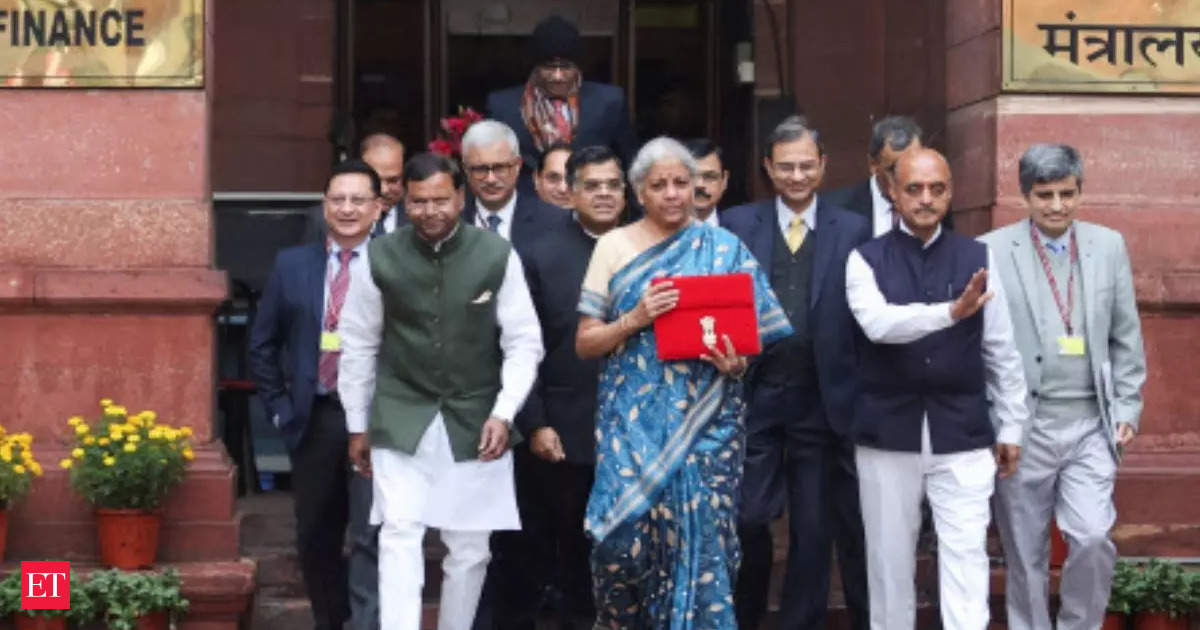Budget Tax Announcements: Finance Minister Nirmala Sitharaman may declare India’s commitment to ‘Pillar 2’, aiming to implement a global minimum effective corporate tax rate of 15%, during the upcoming Budget, ToI reported. This initiative, led by the Organisation for Economic Cooperation and Development (OECD) and supported by the G20, targets multinational enterprise groups with annual consolidated revenues of at least 750 million euros. Its goal is to ensure these entities pay the minimum tax rate in every jurisdiction they operate, with a top-up tax mechanism in place for compliance.
Several key nations that significantly influence investments into and out of India, such as EU countries, the UK, Switzerland, and Singapore, have endorsed or announced their adherence to Pillar 2. India, China, and the US are among the major economies yet to declare their stance on this implementation.
Akhilesh Ranjan, advisor at Price Waterhouse & Co and former CBDT member, emphasized the importance for India to act promptly. He said, “There are more than a hundred Indian-headquartered MNEs that would be in scope of the GloBE rules. Since several countries are in the process of implementing the new rules, India should also consider its introduction at the earliest.”
Government officials suggest that two possible approaches could be adopted. Provisions could be introduced in the Income-tax Act through the Budget, coming into effect later, or a draft of the rules could be released soon for stakeholder comments. A government official noted that the top-up tax might not add significantly to India’s revenue since the country’s minimum tax rate is already 15% or higher. However, other elements of the GloBE rules might be beneficial.
Implications for Indian Multinational Enterprises
Jiger Saiya, partner and leader at MSKA & Associates, explained: “While the top-up tax (in case of a tax rate lower than 15%) is available to the country where the entity operates, the norms of Income Inclusion Rule (IIR) or Undertaxed Profit Rules (UTRP) could help India garner tax, if it implements Pillar 2. IIR gives the right to the country of the ultimate parent entity to collect tax in cases where operating entities are situated in countries that do not levy a minimum corporate tax of 15%. If the country where the ultimate parent company is situated has also not introduced Pillar 2, the countries of other operating entities get this right (provided they implement UTPR).”
The general corporate tax rate in India exceeds the proposed minimum of 15%, but entities in the GIFT city enjoy a ten-year tax holiday. Akhilesh Ranjan further pointed out potential concerns for these entities: “Entities operating in GIFT city will need to take a hard look at the Pillar 2 norms. The substance-based income exclusion rule is effectively a carve-out for expenditure on tangible fixed assets and payroll costs. Top-up on the balance could apply.”
Indian multinational enterprises with global operations face additional considerations. Abhishek Goenka, partner at Aeka Advisors, illustrated this with an example: “An Indian headquartered company has a subsidiary in UAE. If profits are above Dhiram 3,75,000, a 9% tax rate applies. As UAE has not implemented Pillar 2, if India implements it, it could benefit from IIR and get its share of tax under GloBE.”
India’s commitment to Pillar 2 could align it with international standards and ensure fair tax practices among multinational enterprises operating within its borders. The final decision and timing of implementation remain closely watched by industry experts and multinational corporations with a significant presence in India.






